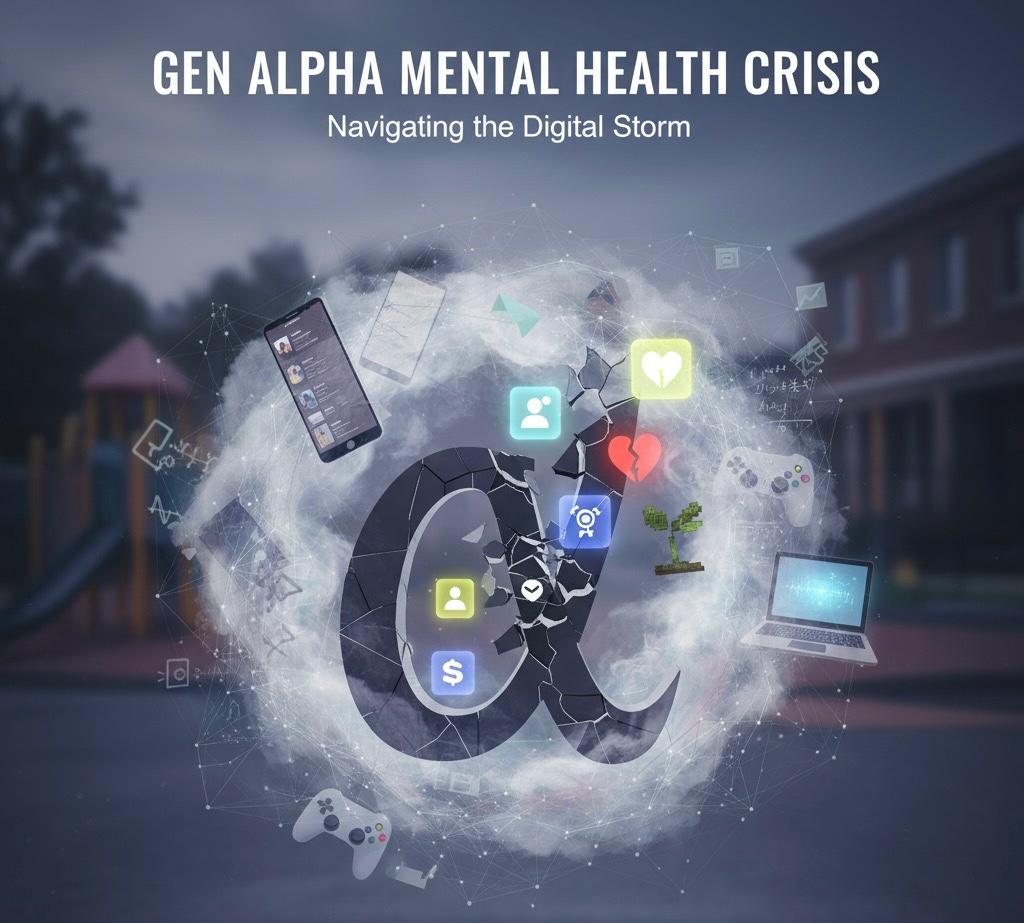Anxiety disorders, characterised by excessive worry, fear, and a host of physical symptoms, affect a significant portion of the global population. Emerging research points to a complex relationship between anxiety and cortisol, a steroid hormone produced by the adrenal glands in response to stress. Cortisol plays a crucial role in the body’s stress response, but its link with anxiety suggests that this relationship might be more intricate than previously understood. This article delves into the scientific exploration of the anxiety-cortisol connection, drawing on contemporary research to shed light on this dynamic.
The Role of Cortisol
Cortisol, often dubbed the “stress hormone,” is integral to the body’s fight-or-flight response, regulating various physiological processes, including blood sugar levels, metabolism, inflammation, and memory formulation. Its production is part of the hypothalamic-pituitary-adrenal (HPA) axis activation, a central component of the body’s response to stress (McEwen, B.S., 2007, Annual Review of Medicine).
Cortisol and Anxiety: The Scientific Perspective
Studies have shown that individuals with anxiety disorders often exhibit altered cortisol levels, suggesting dysregulation of the HPA axis. For example, a study by Vreeburg et al. (2010) in the Journal of Clinical Endocrinology & Metabolism found that individuals with anxiety disorders had higher cortisol levels upon waking compared to non-anxious controls. This cortisol awakening response (CAR) is a crucial indicator of HPA axis functioning, hinting at a potential biological marker for anxiety disorders.
However, the relationship between cortisol and anxiety is not linear. Some research indicates that chronic stress and prolonged cortisol exposure can lead to desensitization of cortisol receptors, potentially dampening the HPA axis response to stress over time (Miller, G.E., et al., 2007, Biological Psychiatry). This adaptation could explain the varying cortisol levels seen in individuals with chronic anxiety, where some may exhibit high cortisol levels while others show blunted responses.
Implications for Treatment and Management
Understanding the link between cortisol and anxiety has significant implications for the treatment and management of anxiety disorders. Interventions that target the HPA axis and cortisol regulation, such as cognitive-behavioral therapy (CBT), mindfulness-based stress reduction (MBSR), and pharmacological treatments, may offer promising avenues for alleviating anxiety symptoms.
Additionally, lifestyle changes that promote stress reduction, such as regular exercise, adequate sleep, and healthy eating, can also influence cortisol levels and, by extension, impact anxiety (Hammen, C., et al., 2009, Annual Review of Clinical Psychology). These holistic approaches highlight the importance of considering physiological factors in the treatment of anxiety disorders.
Practical Tips for Managing Stress and Anxiety
Building on the intricate relationship between anxiety and cortisol, understanding how to manage stress effectively can play a crucial role in mitigating anxiety symptoms and regulating cortisol levels. Here are some practical tips, grounded in scientific research, designed to help individuals manage stress and potentially influence their cortisol responses favorably.
1. Engage in Regular Physical Activity
Exercise has been shown to reduce cortisol levels and improve mood by releasing endorphins, often referred to as the body’s natural painkillers and mood elevators. A consistent exercise regimen can help regulate the body’s stress response over time (Anderson & Shivakumar, 2013, Global Advances in Health and Medicine). Activities like walking, jogging, swimming, or yoga can be particularly beneficial.
2. Practice Mindfulness and Meditation
Mindfulness and meditation practices can decrease stress and cortisol levels, promoting relaxation and present-moment awareness. Techniques such as deep breathing, guided imagery, or mindfulness-based stress reduction (MBSR) have been effective in reducing anxiety symptoms (Hoge et al., 2013, JAMA Internal Medicine).
3. Maintain a Healthy Sleep Routine
Sleep plays a crucial role in regulating cortisol levels. Poor sleep quality can elevate cortisol levels the following day, exacerbating stress and anxiety. Establishing a regular sleep routine, minimizing exposure to screens before bedtime, and creating a comfortable sleep environment can enhance sleep quality (Leproult et al., 1997, The Journal of Clinical Endocrinology & Metabolism).
4. Adopt a Balanced Diet
Dietary choices can influence cortisol levels and stress responses. Foods rich in omega-3 fatty acids, vitamin C, and magnesium have been associated with reduced cortisol levels and improved mood. Conversely, high sugar and caffeine intake can increase cortisol and exacerbate anxiety symptoms (Li et al., 2016, Nutrients).
5. Foster Social Connections
Social support is vital in managing stress and reducing feelings of anxiety. Engaging with friends, family, or support groups can provide emotional comfort, practical assistance, and a sense of belonging, contributing to lower stress levels (Uchino, 2006, Psychological Bulletin).
6. Seek Professional Help When Needed
For individuals experiencing persistent anxiety or stress that significantly impacts daily functioning, seeking professional help can be crucial. Therapies like cognitive-behavioral therapy (CBT) and medication can be effective in managing anxiety disorders and should be considered in consultation with a healthcare provider.
Conclusion
The connection between anxiety and cortisol underscores the intricate interplay between psychological states and physiological processes. While research continues to unravel the complexities of this relationship, it is clear that cortisol plays a significant role in anxiety disorders. Future studies will undoubtedly provide deeper insights into how this knowledge can be harnessed to improve anxiety treatment strategies, moving towards more integrated and personalized approaches to mental health care.
Take this quick self assessment
References
- McEwen, B.S. (2007). Physiology and Neurobiology of Stress and Adaptation: Central Role of the Brain. Annual Review of Medicine.
- Vreeburg, S.A., et al. (2010). Major Depressive Disorder and Hypothalamic-Pituitary-Adrenal Axis Activity: Results from a Large Cohort Study. Journal of Clinical Endocrinology & Metabolism.
- Miller, G.E., et al. (2007). Clinical Depression and Regulation of the Inflammatory Response During Acute Stress. Biological Psychiatry.
- Hammen, C., et al. (2009). Stress and Depression. Annual Review of Clinical Psychology.
- Anderson, E., & Shivakumar, G. (2013). Effects of Exercise and Physical Activity on Anxiety. Global Advances in Health and Medicine.
- Hoge, E.A., et al. (2013). Randomized Controlled Trial of Mindfulness Meditation for Generalized Anxiety Disorder: Effects on Anxiety and Stress Reactivity. JAMA Internal Medicine.
- Leproult, R., et al. (1997). Sleep loss results in an elevation of cortisol levels the next evening. The Journal of Clinical Endocrinology & Metabolism.
- Li, Y., et al. (2016). Dietary Patterns and Depression Risk: A Meta-Analysis. Nutrients.
- Uchino, B.N. (2006). Social Support and Health: A Review of Physiological Processes Potentially Underlying Links to Disease Outcomes. Psychological Bulletin.
How to get in touch
If you or your patient/NDIS clients need immediate mental healthcare assistance, feel free to get in contact with us on 1800 NEAR ME – admin@therapynearme.com.au







